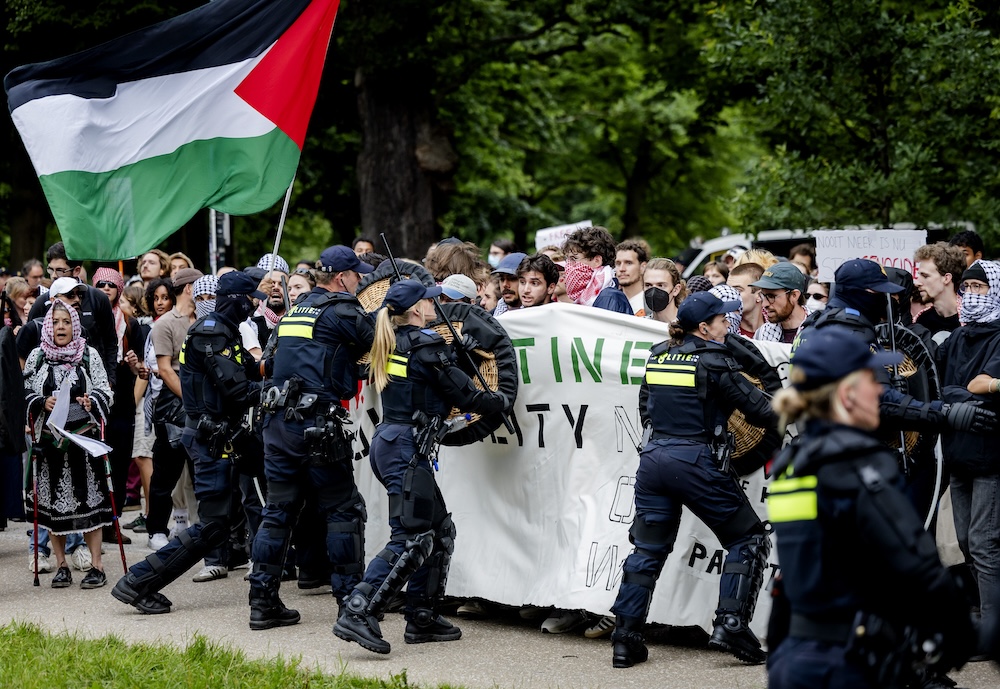Netherlands withdraws three navy export licences to Israel

The Dutch foreign ministry has withdrawn three licences for the export of naval ship components to Israel, in what outgoing foreign minister Caspar Veldkamp described as a “unique” step.
A ministry spokesperson told current affairs show Nieuwsuur the licences were reviewed and cancelled last month “due to the deteriorating situation in the Gaza Strip” and “the risk of undesirable end use.” The granting of export permits for weapons or parts to Israel is controversial because of their possible use in the war in Gaza.
Since the Hamas attacks on Israel in October 2023, the government has approved eight export licences for military goods destined for Israel, including parts for the Iron Dome missile defence system, alongside the three that were recently withdrawn. Eleven applications have been refused in that period, Veldkamp told MPs in a briefing last week.
He also said it was now “virtually impossible” for the ministry to approve permits for arms that could be used in Gaza or the West Bank.
Ten Palestinian and Dutch organisations have launched legal action to halt all arms exports to Israel, arguing that the Netherlands is failing to meet its obligations under international treaties, including the Genocide Convention and the Arms Trade Treaty. The case will be heard on 3 September.
Earlier, the appeal court blocked the export of F-35 fighter jet components to Israel. That case is now before the Supreme Court.
The Netherlands does continue to export specially trained dogs to Israel, despite growing pressure to restrict the trade due to concerns about their use by the Israeli military in human rights abuses, Nieuwsuur reported in June.
The move to revoke the export licences came days before an emergency debate in the Tweede Kamer, where MPs interrupted their summer recess to discuss the war in Gaza.
Veldkamp defended the government’s current policy, pointing to recent sanctions against two Israeli ministers and a limited export ban, but said real pressure would require coordinated action with Europe and the US.
Opposition parties called for a complete arms embargo, broader sanctions and recognition of a Palestinian state and the CDA said it would support recognition under certain conditions. However, there was no political majority for any of these proposals, which are opposed by the caretaker cabinet.
The right wing VVD and Christian parties SGP and ChristenUnie said action should be coordinated at EU level. They warned that far-reaching measures would also affect Israel’s civilian population and security.
Dutch food drops
Meanwhile, the Netherlands will on Friday begin daily airdrops of food, water and medicines over Gaza in cooperation with Jordan. A military transport plane flew from Eindhoven to Jordan earlier this week to be loaded for the mission, which will last two weeks.
Aid agencies have warned the drops are costly, dangerous and insufficient compared with deliveries by road. “There is no alternative to land routes in terms of scale and efficiency,” said Olga Cherevko of the UN’s humanitarian affairs office OCHA.
The operation comes as Israel expands its offensive in Gaza City and humanitarian groups report extreme hunger. The UN’s food security monitor IPC says one in three Palestinians has gone days without eating. Oxfam Novib called the drops a “symbolic attempt to ease political consciences” while thousands of lorries loaded with aid remain stuck at Gaza’s borders.
Thank you for donating to DutchNews.nl.
We could not provide the Dutch News service, and keep it free of charge, without the generous support of our readers. Your donations allow us to report on issues you tell us matter, and provide you with a summary of the most important Dutch news each day.
Make a donation